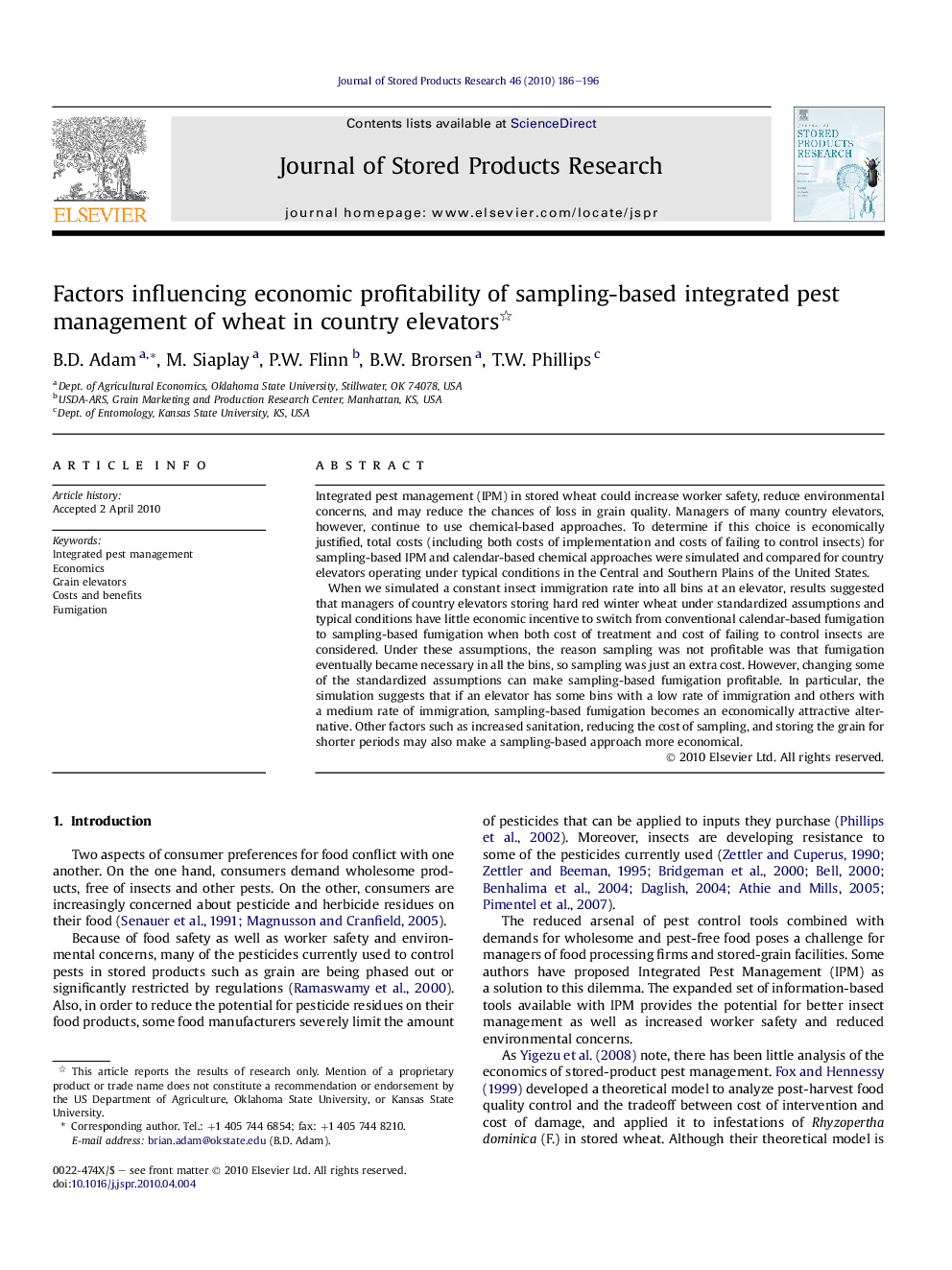| Article ID | Journal | Published Year | Pages | File Type |
|---|---|---|---|---|
| 4517302 | Journal of Stored Products Research | 2010 | 11 Pages |
Integrated pest management (IPM) in stored wheat could increase worker safety, reduce environmental concerns, and may reduce the chances of loss in grain quality. Managers of many country elevators, however, continue to use chemical-based approaches. To determine if this choice is economically justified, total costs (including both costs of implementation and costs of failing to control insects) for sampling-based IPM and calendar-based chemical approaches were simulated and compared for country elevators operating under typical conditions in the Central and Southern Plains of the United States.When we simulated a constant insect immigration rate into all bins at an elevator, results suggested that managers of country elevators storing hard red winter wheat under standardized assumptions and typical conditions have little economic incentive to switch from conventional calendar-based fumigation to sampling-based fumigation when both cost of treatment and cost of failing to control insects are considered. Under these assumptions, the reason sampling was not profitable was that fumigation eventually became necessary in all the bins, so sampling was just an extra cost. However, changing some of the standardized assumptions can make sampling-based fumigation profitable. In particular, the simulation suggests that if an elevator has some bins with a low rate of immigration and others with a medium rate of immigration, sampling-based fumigation becomes an economically attractive alternative. Other factors such as increased sanitation, reducing the cost of sampling, and storing the grain for shorter periods may also make a sampling-based approach more economical.
